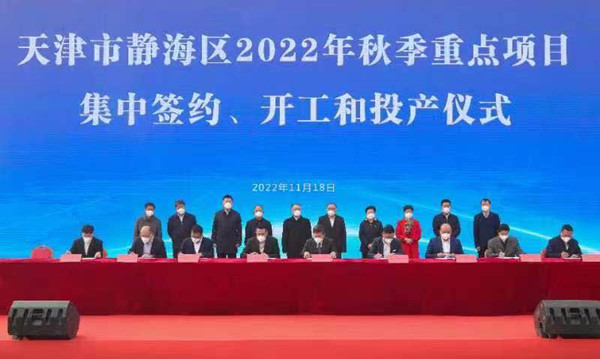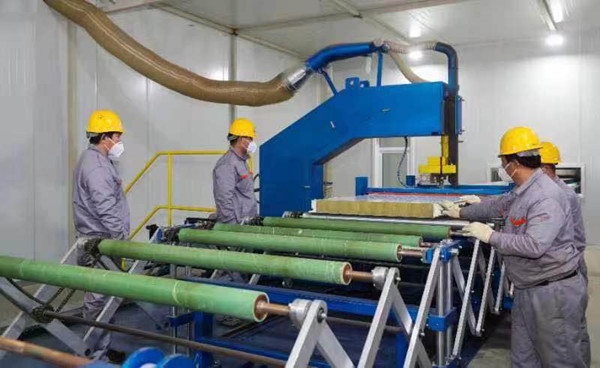
Tianjin’s Jinghai district held a ceremony celebrating 35 key projects with a total investment of 9.11 billion yuan ($1.3 billion), boosting the area’s high-quality economic development. The ceremony involved anywhere from signing to starting construction or opening of the projects.
"Such big projects serve as important fulcrum for attracting investment, are key to stable economic development, and therefore are of great significance to Jinghai,” said Liu Wenchuang, director of the district’s cooperation and exchange office.
The addition of these major projects continues the district’s development momentum. In the first three quarters, the district saw investment in fixed assets increase by 3.8 percent year-on-year.
From January to October, there were 257 projects with capital in place totaling 9.89 billion yuan, a year-on-year increase of 14.87 percent. Up to now, a total of 188 projects have been signed, with a total planned investment of about 58.42 billion yuan.
Jinghai has vigorously pushed ahead with its strategic emerging industries. The emerging sector accounted for 61.7 percent of the district’s newly introduced projects this year, focusing on health, intelligent manufacturing, electric bicycles and automobiles, and the circular economy.

"Strategic emerging industries are the key to driving industrial upgrading and seizing development opportunities. The introduction of the projects opens up a broader future space for Jinghai," Liu said.
At present, Jinghai has formed nine industrial chains including new generation information technology and digital economy, biomedicine, and high-end equipment manufacturing, with more than 810 enterprises.
"The development of the real economy is in line with Jinghai’s position and philosophy, and it provides momentum for future economic development," said Liu Huiwu, director of the district’s development and reform commission.
Jinghai has continuously promoted the upgrading of traditional industries with technological transformation, product innovation, and increased the technological content of traditional industries.





